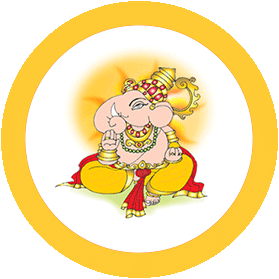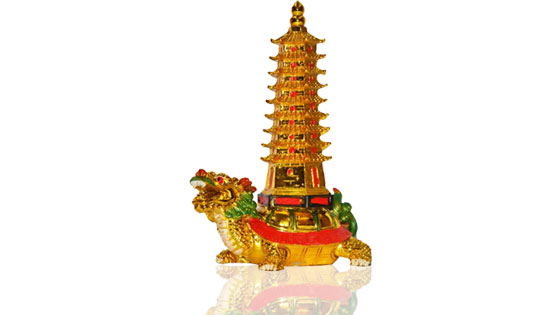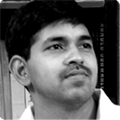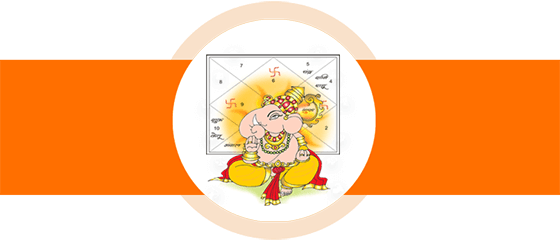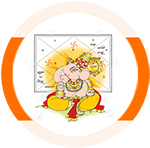Importance and Control of Nervous System
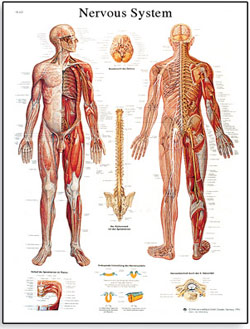
"When we consider," says Courtney, "that it is upon the perfect integrity of the fine adjustment of this delicate and intricate organization, the nervous system, that the healthy functional activity of every other tissue in the body, even to that of the most insignificant secreting gland, depends, we are in a position to estimate the extent to which our physical as well as mental well being is under its control."According to Petrova, Usurinov and other progressive scientists, old age and death follow as a result of the inefficiency of the nervous system which is continually devitalized by the old age pigments.
Moreover as the sole objective of scientific Yoga is either to gain control of or to restrain the mental modifications (cittavrtti) from taking various forms, and as the brain and the nervous system are the only physiologic organs through which such a mental control is to be gained, it is easy to realize what an amount of elaborate details the practical yogins must have worked out to establish complete mastery over the entire nervous system and the brain. In fact, the practice of Hathayoga is directed mainly to the good health and control of the nervous system for it is emphasized that only through the complete purification of the nervous system (nadisuddhi) when the fivefold nerve impulses are made to flow in absolute harmony through the susumna is the state of trance consciousness (samddhi) reached.
NERVOUS DISORDERS
Because of the lack of proper understanding about the functions of the sympathetic nervous system, it has become quite common now a days, to attribute a lot of diseases to "mere nerves," most of which do not actually belong to the category of nervous diseases. This method of easy explanation, at times, leads to misconceptions with regard to the origin and serious nature of the disease. Of course, having most direct and intimate relationship with every part of the body, even the slightest local disturbance is sure to be felt by the nervous system. Likewise all nervous disorders cannot fail to cause specific functional derangements and, in some instances, it becomes impossible to dissociate their interdependence when prescribing treatment. Yoga therapy is therefore threefold and treats the whole man and not only his body.
'Nervous maladies may principally be attributed to mental attitude in life, e.g., pessimism brings on will failure termed neurasthenia (Fisk and Fisher), vague association of fears and anxieties cause general and nervous debility (Frink), anger contributes to hepatic torpor and indigestion and so forth. From what we now know of this world, it cannot be denied that the curse of modern civilization is nervous strain ; and modern life has thus, indeed, increased the scope of nervous disorders.180 There are numberless, what are termed, "war neurotics" (Salmon) with whom maybe conveniently added the economic, political, social, religious and other neurotics the people who suffer from mental afflictions for no other reasons whatsoever except having to labour under the unusually heavy nervous strain incidental to the abuse of these institutions. Put together these people and these facts which are unfortunately little known to the sufferers and lesser still to the physicians who treat them for their nerves, and we have a perfect picture of, what we might term, a world full of chronic neurotics. Such suffering, however, can be relieved only by radical and suitable change's and adjustments of the environments which lead to such nervous disorders rather than by engaging the services of a million specialists and physicians to cure them.
Besides such suffering as a result of modern hurry worry life, poverty and servitude, a large percentage of disorders may also be traced to imagination, the so called malades imaginaires (Lasegue). These diseases are, in fact, not imaginery diseases, but they arediseases due to imagination and actually accompanied by real functional and psychic disturbances.
As rightly advised in the Mahabharata the best cure for such diseases lies in the only recipe that one should not think of them at all.
Apart from these psychic ' mental and emotional conditions, there are a large number of other causes also which produce nervous disorders, e.g.,(i) chemical (auto intoxication, habit forming drugs, and overwork etc.), (ii) mechanical (local injuries and deformities), (iii) hereditary, and (iv)environmental. Insanity is often due to one or many of the above causes of course, in their extreme form which lead to neurosis and psychosis, the condition becoming more and more acute gradually till at last it culminates into a chronic state beyond recovery. If not, it abruptly ends in suicide.
From the experimental work of Abelous, Hodge and others, it would seem that all nervous disorders denote a condition of pathologic fatigue of the entire nervous system and also connote a coexistent condition of morbid nervous irritability. Malnutrition is also responsible for many cases of nervous disorders, and, according to the data available at the clinic of the Institute, one in every four suffers from this ailment. Nervous weakness, therefore, is nothing short of an outraged nervous mechanism. Nervousness is really the cry of the nerves for better nutrition and care. This is possible only through healthy mental attitude, rest, recreation, balanced diet, improvements of a constitutional nature, and the specific treatment of the spine, etc.
YOGA MENTAL HYGIENE
With this brief understanding of the paramount importance of the role played by the brain and nervous system in the carrying on of the vital functions of both the body and the mind and, most significantly, in the ultimate realization of Yoga, it is now easy to appreciate a consideration of the elaborate measures which have been adopted by the ancient yogins for the maintenance of these organs in a healthy state. The first in importance stands the moral discipline and mental hygiene. Of these, the considerations which bear largely upon the physical well being are: (a) education, (b) .freedom from emotion, and (c) concentration.
(a) Education: This should begin with and govern the prenatal life for it is rightly believed that parental influences are quite marked and shape, to a large measure, the physical and mental constitution of the unborn. The care of the infant, the education of the preschool child, the school boy or girl during puberty and adolescence the adult and even the advanced life should be governed by considerations of personality, character, and mental hygiene and the habits so regulated as to harmonize with the basic yoga ideal of immaculate mental purity.
(b) Freedom from Emotion: "There is certainly, as every physiologist knows," says Ward, "a very close connection between sensation and such various organic movements as those of circulation, respiration and secretion. But in strong emotions it rises into distinct prominence as part of what is called 'emotional expression'. When, however, the emotional influences dominate the entire nervous system to the limit of its strength, it is often followed by a nervous shock or disease.
In some instances, it has been found to be even fatal.
Emotion, thus, is a great bodily event working either for, or against, the welfare of the entire organism. The so called curve of health (Holmes) which represents the ebb and tide of the living organism, under average conditions, is largely influenced by the emotional reflexes of an individual. For good health, it is extremely essential, as Myerson points out, to keep a close watch over all changes in mood and feeling which need attention as muchas shortness of breath and indigestion.
As a consequence, absolute freedom from emotions which the yogins term equanimity (samatva) is regarded as a prime requisite for the health of the brain and nerves it being understood that even the less violent emotions do not fail to leave behind a trail of ill effects. It is now widely recognized that mental happiness is one of the biggest factors in promoting good health and longevity. That it is not possible to maintain health of the body and mind without a rigid course of mental hygiene due to the influence of the mind on the body and vice versa had since long been recognized by the practical yogins. They therefore formulated a code of moral discipline cum mental hygiene, beginning with the first two accessories of Yoga what in the phraseology of William James be best appreciated by the term a "religion of healthy mindedness."
It is imperative for any student of Yoga to practice the code of mental hygiene and moral discipline first, even before he is initiated into the actual technique of Yoga. In fact, the yogin's "religion of healthy mindedness" consists of the ten positive and ten negative virtues known as yama and niyama restraints and observances respectively. These are : (i) non violence, (ii) truth, (iii) non stealing,(iv) chastity, (v) non covetcousness, (vi) forbearance,(vii) compassion, (viii) fortitude, (ix) moderation, and (x) purity ; and (i) equanimity, (ii) contentment, (iii) self confidence, (iv) charity, (v)resignation to the Ultimate, (vi) Study, (vii)discrimination, (viii) humility, (ix) introspection, and (x) perseverance. For the yogin, theses virtues of moral and mental life are considered indispensible since the mind becomes pure and steady in proportion to the amount of success and sincerity with which they are observed. In Yoga, the mere knowledge is not enough, but such knowledge has to be put into practice and realized personally. No one, therefore, can claim to be the yogin unless, in the first instance, he is endowed with the above virtues.
(c) Concentration: To habituate the mind to concentrate its energies upon a given object is dhdrana or one pointedness. It is really the effort of the mind to fix itself on a particular object or thought, instead of allowing it to diffuse its energies in varied directions. The power of concentration and the power of detachment what the yogins term abstraction or pratyahara are nearly related, where the former is always preceded by the latter. It breaks up the strain of monotony and thus helps to avoid mental labour, and consequently the amount of nervous exertion is lessened. Physiologists are agreed that the habit of such concentration produces sedative nervous effects alike the deep breathing exercises which are conducive to the health of both the brain and the nerves. Moreover, "the foundation of all success in life whether physical, mental, moral or spiritual depends entirely on the power of concentration and this could be effectually developed from childhood by means of systematic training . It is, therefore, essential that there must be concensration in everything which is not mechanical. Concentration in action is a part of Yoga. Begin with akasamudra or the symbol for concentration on space.
RECREATION
Occupational therapy recognizes the influence of occupation on health and it has been amply demonstrated that monotony of occupation, industrial or otherwise, leads to nervous disorders and that, in many instances, radical cures have been reported through changes in such occupations(Washburn). The results may be attributed to psychic change of automatous environments or to better physical adjustments by contrast of reflexes. Whatever it is, one thing is clear that any change in mental or physical occupation for the better, even for a few weeks or a few hours daily, adds materially to the health of the nervous system.
Persons with sedentary habits will find great relief in out of door sports, e.g., golf, tennis and cricket etc. Whenever permissible, an out of door life accompanied with such hygienic activities as hiking, swimming, gardening etc., may be undertaken with benefit, besides a systematic course of physical training outlined in this work.
The yogin's best recreation consists in the study and love of all that is in Nature
where, indeed, the entire being is called into delightful activity with the least
possible effort of will nearly resembling the spontaneity of childhood. It has beer:
found that in such engagements the brain is relieved of its excess of circulation,
the nervous system is rested, and the entire man refreshed and renewed.
Astrological services for accurate answers and better feature
Astrological remedies to get rid of your problems

AstroSage on MobileAll Mobile Apps
AstroSage TVSubscribe
- Horoscope 2026
- राशिफल 2026
- Calendar 2026
- Holidays 2026
- Shubh Muhurat 2026
- Saturn Transit 2026
- Ketu Transit 2026
- Jupiter Transit In Cancer
- Education Horoscope 2026
- Rahu Transit 2026
- ராசி பலன் 2026
- राशि भविष्य 2026
- રાશિફળ 2026
- রাশিফল 2026 (Rashifol 2026)
- ರಾಶಿಭವಿಷ್ಯ 2026
- రాశిఫలాలు 2026
- രാശിഫലം 2026
- Astrology 2026








